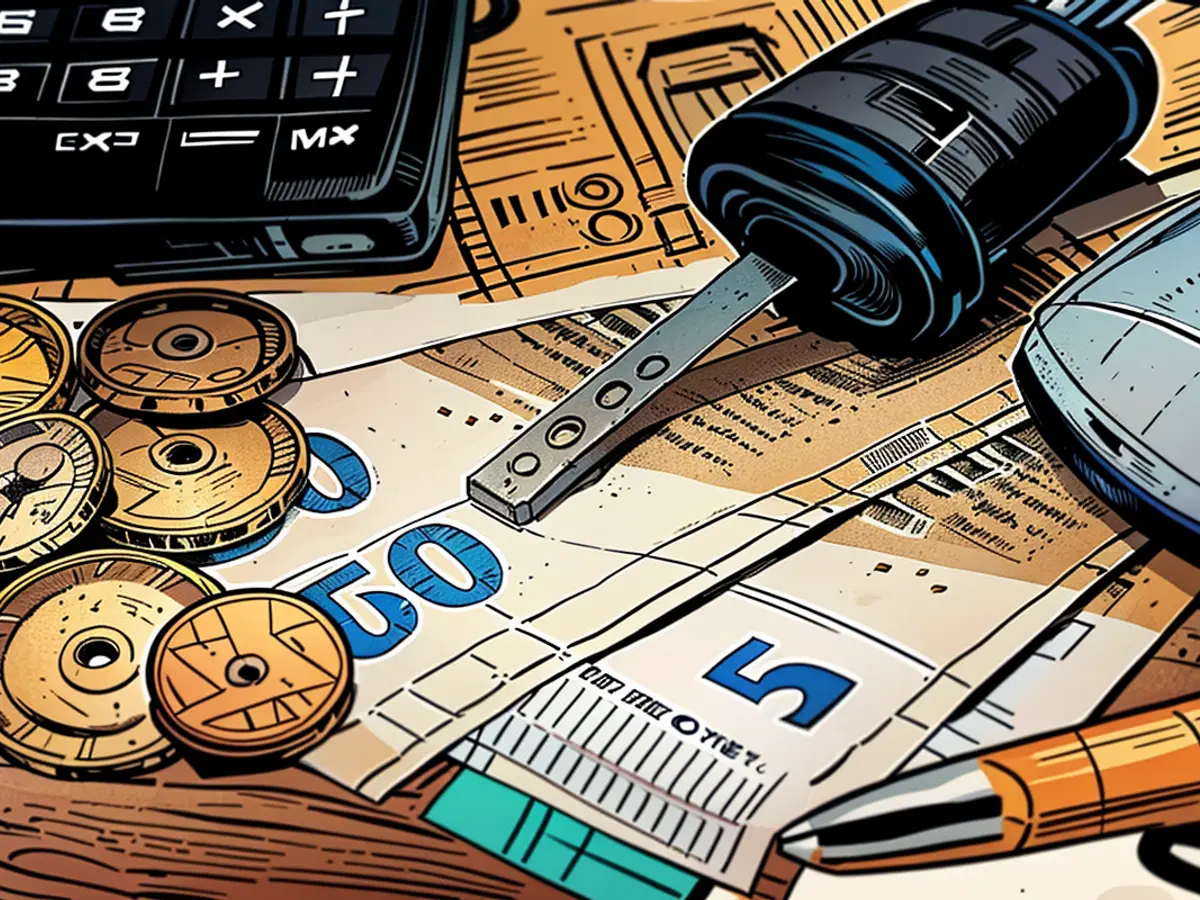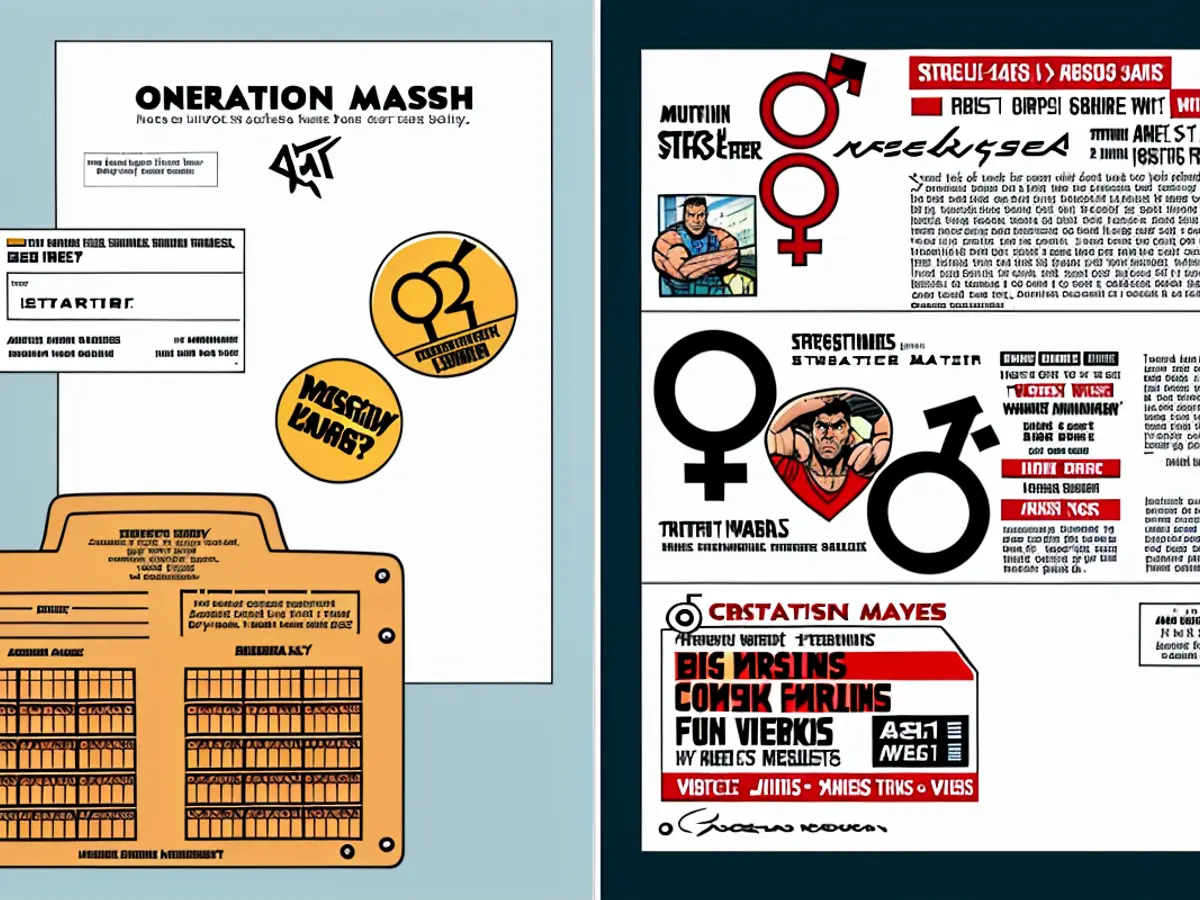Perspective: Mending the Damaged U.S. Student Loan System
President Joe Biden and his critics from the Republican party share a common concern about the student loan program, which they both view as flawed. Democrats believe that the program has left students burdened with mountains of unmanageable debt, while Republicans argue that the loan program's status as a loan rather than an entitlement program has been compromised by Biden's mass cancellation efforts. However, Biden's administration continues to push forward with its mass loan forgiveness program without reforming the student loan system in the process.
Meanwhile, many conservatives are advocating for a government exit from the student loan business altogether. They believe that privatizing federal student loans, or letting the government pull back and allowing private entities to lend instead, could be a solution. For those pursuing higher education, federal loans have become an easy and almost indiscriminate source of funds, without considering the quality of the program or the projected earnings.
This, in turn, encourages colleges to maintain programs that lack value and raise tuition, all the while capturing more government funds. The involvement of the private sector in lending could provide much-needed checks and balances in the system. Lenders would be responsible for repaying the loans they offer, with their profit and loss depending on the degree's value and the student's post-graduate employment outcome. Thus, privatizing student loans encourages colleges to focus on improving their return on investment and ensuring students embark on an education that has a high potential for earnings.
The federal government has plans to lend $1 trillion in new student loans in the next ten years, and the Congressional Budget Office estimates that the government will lose approximately 25% of this amount in that period. Privatization of student loans has the potential to save taxpayers up to a quarter of a trillion dollars over the next decade.

Notably, the real savings could be even greater because ending federal student loans would stop future administrations from employing loan cancellation as a way to win votes. The money saved could be used for deficit reduction or to expand financial aid for low-income students. However, proponents of privatization must be cautious. It's crucial to avoid federal guarantees for private student loans, as they would shift the risk of default from the lender to the taxpayer. Returning to the Federal Family Education Loan (FFEL) program, which previously guaranteed private loans, is also undesirable as it would allow lenders to enjoy the rewards of good loans without bearing the consequences of bad ones.
Restricting financial innovation and stifling the private sector through hostile regulations also pose risks for any privatization efforts. Colleges should be allowed to use factors like projected earnings or program return on investment to make lending decisions, rather than relying on outdated metrics like FICO scores. The Consumer Financial Protection Bureau claims that using a college's default rate could be in breach of fair lending laws. Without protection for lenders who make decisions based on outcomes, overzealous regulators could squash the private market.
Lastly, supporters of privatization must consider the potential consequences of ending federal loans for students from less financially-endowed backgrounds. While many students may be able to secure private loans, some will face limited access. Instead, a more thoughtful solution could involve using a portion of the savings from privatization to increase the Pell grant, a program that provides financial aid for low-income students. Since Pell grants don't need to be repaid, they would help to cover the cost of tuition and reduce the loan burden for these students.

In summary, while the American higher education system is admired globally, the dysfunction of the federal student loan program has destroyed the promise of a valuable education for numerous students. Privatization of loans and subsequent reforms could help ensure that students graduate with a worthwhile degree and minimal debt.
Read also:
- This will change in December
- Dikes withstand water masses so far - Scholz holds out the prospect of help
- Fireworks and parties ring in 2024 - turn of the year overshadowed by conflicts
- Attacks on ships in the Red Sea: shipping companies avoid important trade route
Critics of President Biden's mass loan forgiveness program argue that it overlooks the importance of considering the quality of the educational programs and the projected earnings of students, leading to a potential misuse of federal funds. Such opinions suggest that privatizing student loans could incentivize colleges to focus on improving their return on investment and offering education with high potential earnings for students.
The privatization of student loans could potentially save taxpayers up to a quarter of a trillion dollars over the next decade, according to estimates. However, proponents must be cautious to avoid federal guarantees for private loans and hostile regulations that could suppress the private sector while ensuring equitable access to loans for students from less financially-endowed backgrounds.
Source: edition.cnn.com








